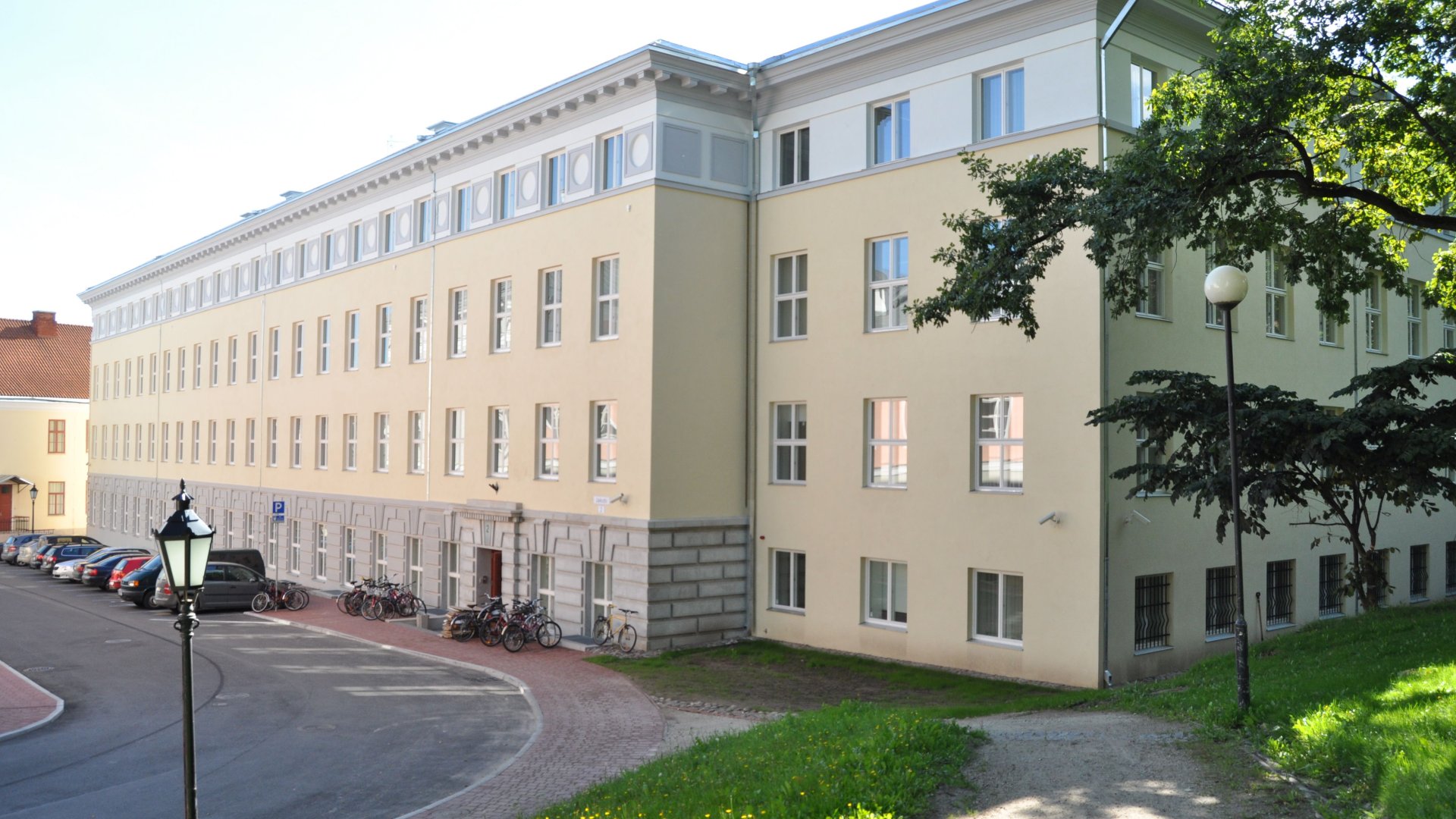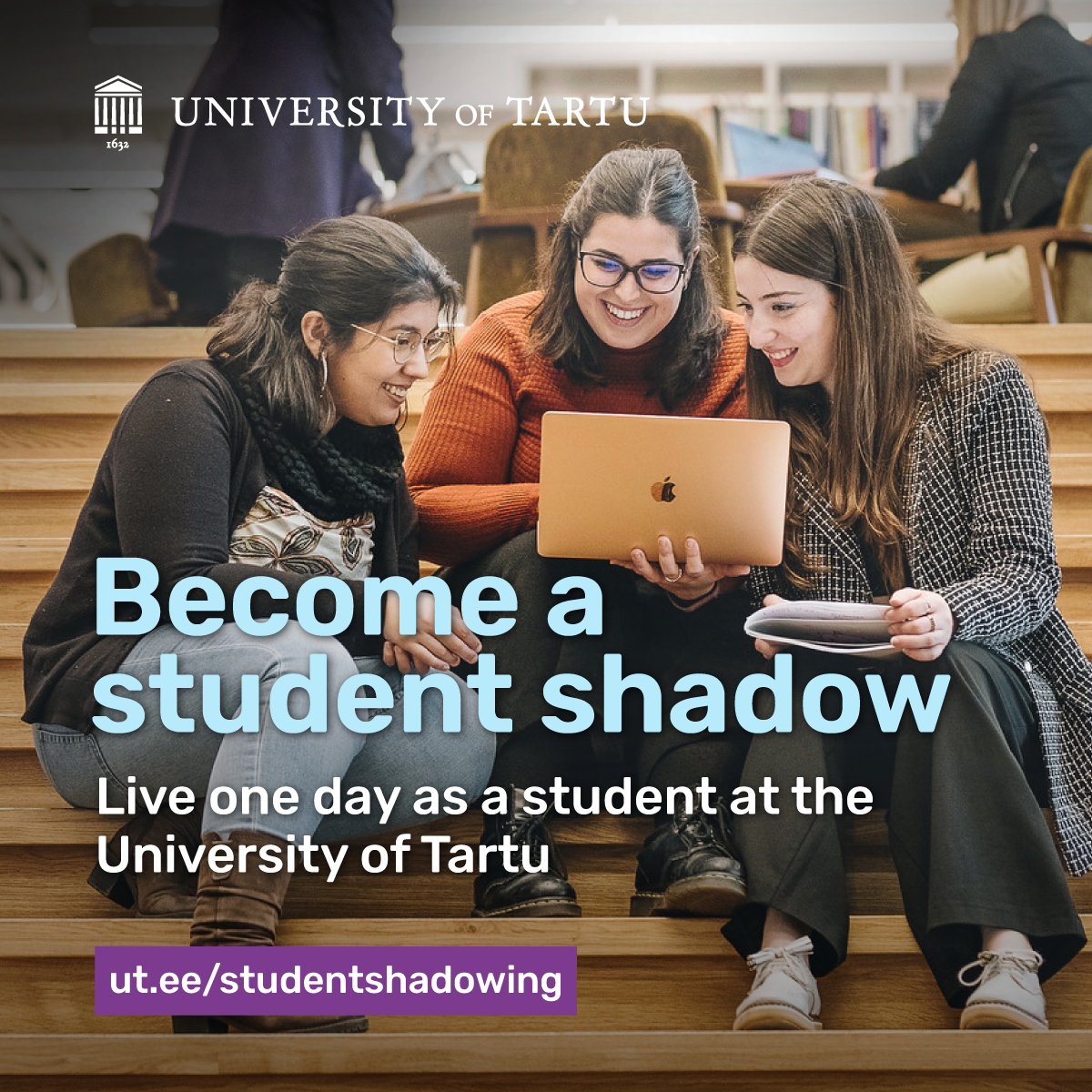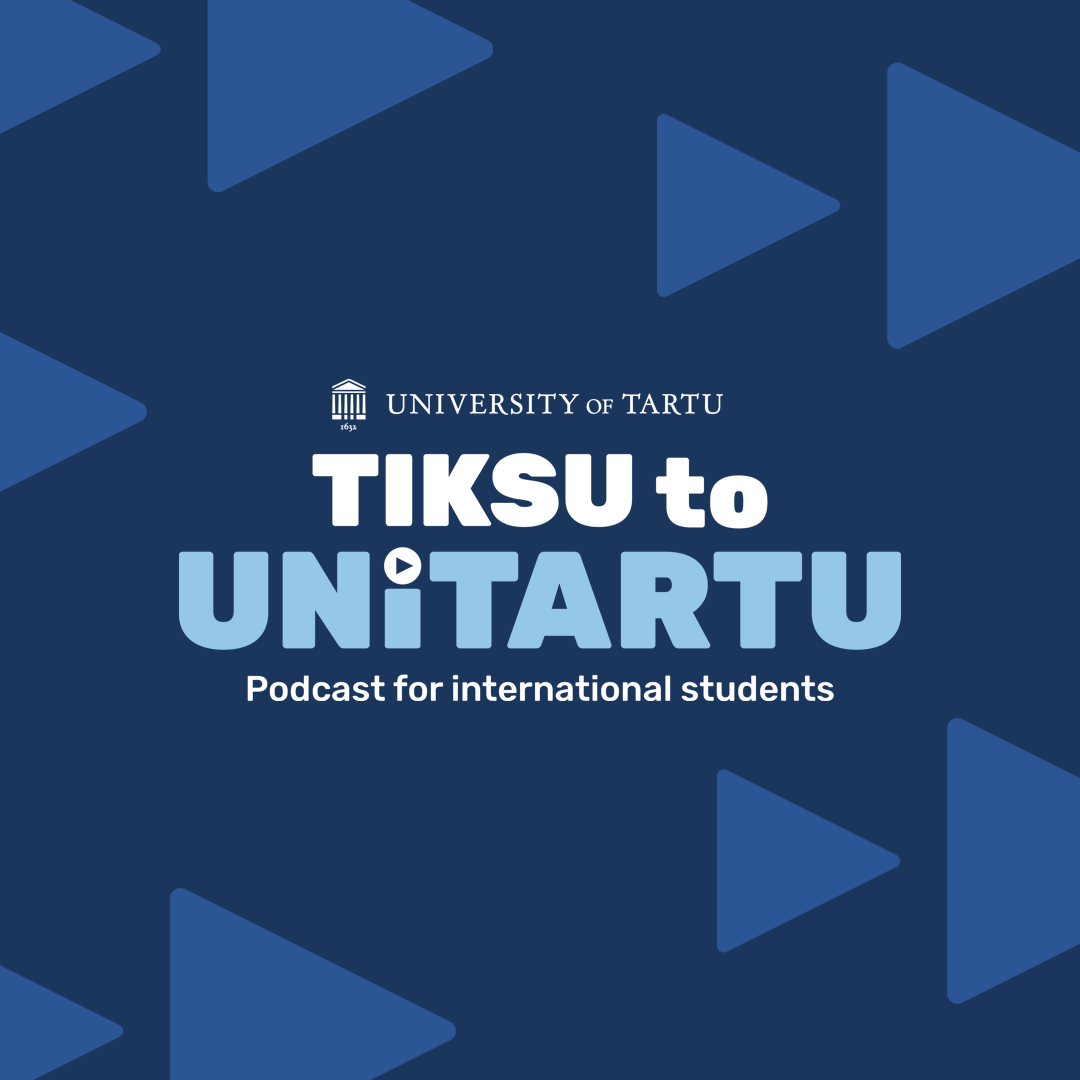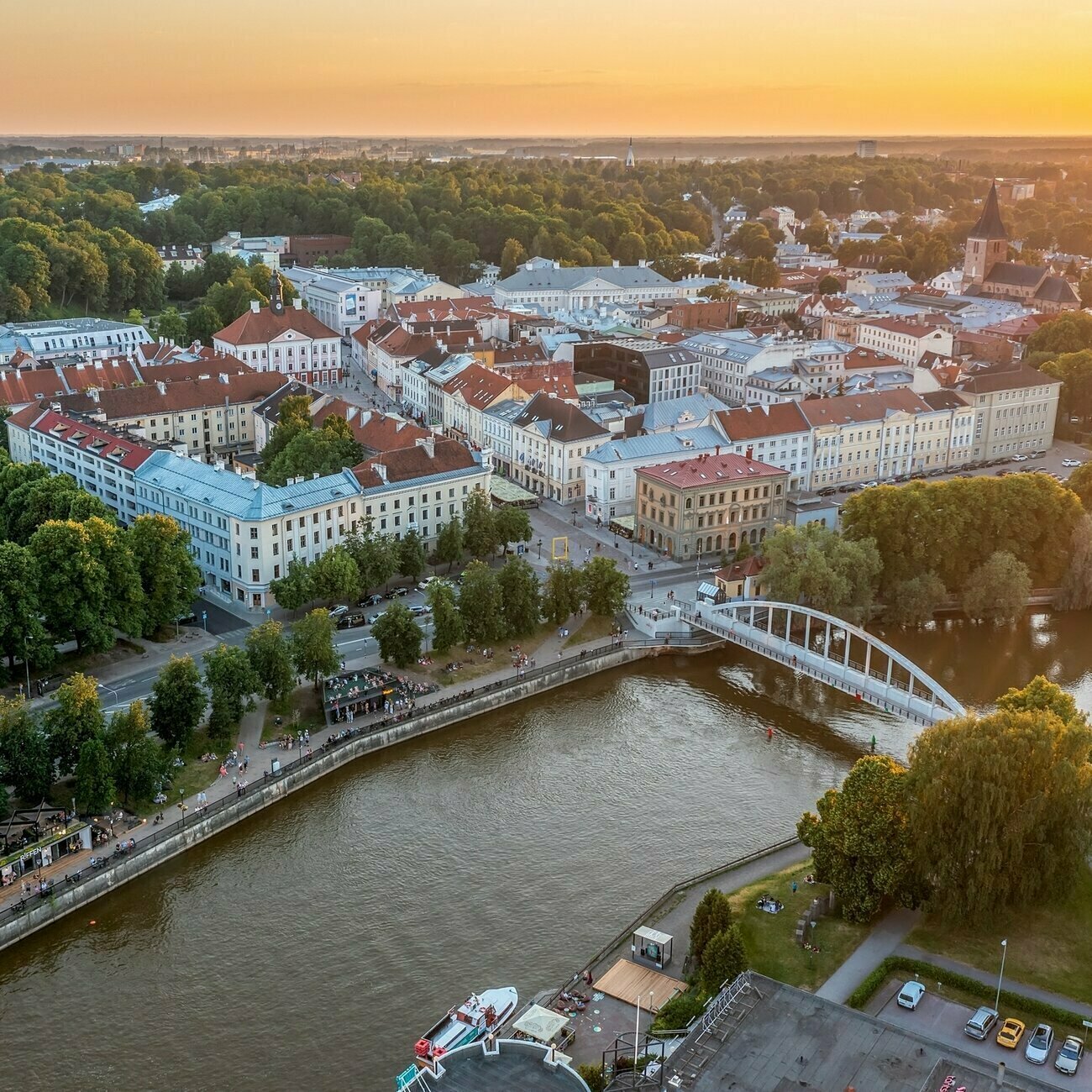Semiotics
Master's
2 January
15 March
30 April
1 September
- The University of Tartu belongs to the top 350 universities in the world (see Rankings and Surveys).
- Learning semiotics makes you understand meaning creation, interpretation and communication processes in culture, society and living nature, from fundaments to applications.
- A warm and lively international academic community and approachable top semioticians are the daily reality of your studies.
- Upon graduation, you can apply your knowledge and skills for cultural and social analysis in diverse fields, including the option to continue studies at the doctoral level in semiotics or related fields.
- The Department of Semiotics, founded by Juri Lotman, is unique as it is one of the most important centres of semiotics in the world, and it teaches complete bachelor's, master's and doctoral programmes in semiotics.
The master's programme in Semiotics provides a background in the history and theory of semiotics, specialisation in its branches, applications and interdisciplinary connections of semiotics. The core of studies includes basic courses in semiotics, specialisation and master's thesis research. Elective courses and international learning mobility can widen this core. Basic courses provide systematic knowledge and enable discussions about the history and main concepts of semiotics, introduction to Tartu traditions in semiotics and methodological skills for conducting semiotic research.
Specialisation courses go deeper into three branches of semiotics: the semiotics of culture, sociosemiotics and biosemiotics. You can take all courses from each branch or focus more on one or two branches during your studies. Further, you can widen your studies with elective courses that often focus on particular topics or authors, are held by visiting professors or discuss emerging lines of research. Master School of humanities helps to make your study content and experience truly interdisciplinary by offering common elective courses in all humanities fields and bringing students together to the annual student conference.
Studies take place in small groups with supportive and intellectual interactions. Group size varies from 10 to 20 students; classes have face-to-face meetings, use many interactive methods and discussions and have solid digital support. Courses are scheduled for the first three semesters, leaving the last semester of the studies for more intensive work on the MA thesis.
The programme and courses are designed to encourage students to find their key interest in semiotics and apply it to understanding and changing the world. You can choose your topics and material for assigned analyses and apply your knowledge and skills in a practical working environment during an internship – and thus make a change by applying semiotics analytically or creatively.
You can make your studies even more international and diverse by participating in study mobility for a semester or a year. The Department of Semiotics has mobility agreements with various universities in Europe, and the University of Tartu partner university agreements enable mobility beyond Europe. You can flexibly design your studies abroad using the elective mobility module in the curriculum.
An essential part of semiotic studies is research. There are two options for the master’s research. It can be a traditional academic thesis solving a research problem either by theoretical argumentation based on previous studies or by empirical analysis. The other option is a more limited master’s project where creative and applied methods are used to study and solve a practical issue of meaning-making. For your research, you can design the topic out of your interests and rely on the teaching staff’s competencies in supervising international students and varied topics in the semiotics of culture, sociosemiotics and biosemiotics. From the very first day, there is a master’s seminar to support you in designing your research, finding the supervisor and orienting your studies.
The most inspiring thing I find about my studies is the diversity of the fields, theories, and examples at the Department of Semiotics. From natural studies to cultural studies, there are all kinds of interesting and intriguing materials and since I have many fields of interest, this is the best for me. It has helped me a lot, and I've learned so many new things. Studying semiotics at the University of Tartu is "minu parim valik" (my best choice in Estonian).
Why study semiotics?
- Semiosis is the underlying process of all meaning creation. Semiotics is the general study of sign processes, i.e., semiosis. Today's world, where communication and economic processes have a disbalance of global and local dimensions, challenges us to understand the need of individuals and societies for defining their identity. Semiotics is centrally relevant to achieve this understanding.
- By studying semiotics, you will develop your skills of analysing communication and meaning-making in culture, society and living nature – for example, in arts, in the digital semiosphere, cultural memory, identity formation, conflicts, politics and strategic communication, environmental and interspecies communication and the smallest instances that all meaning-making starts from. You will also develop your communication skills and ability to interconnect different scales, models and semiotic systems for understanding and explaining the world.
Semiotics in Tartu
- The tradition of excellence in semiotic theory in Tartu was established by Juri Lotman, one of the founders of the semiotics of culture and the Tartu-Moscow Semiotic School and the oldest journal of semiotics Sign Systems Studies.
- Nowadays the Department of Semiotics of the University of Tartu is one of the most important centres of semiotics in the world, developing a comprehensive approach to semiotics and maintaining the connection to its roots in the works of Juri Lotman and Jakob von Uexküll - founding figures of the semiotics of culture and biosemiotics. The University of Tartu has been one of the few institutions teaching full bachelor's, master's and doctoral degree programmes in semiotics since 1993. As one of the leading centres of semiotics, the university collaborates with and is visited by researchers from around the world.
- The Department of Semiotics is home to an impressive collection of semiotic materials, including the memorial library of Thomas Sebeok - one of the world leaders in 20th-century semiotics.
The University of Tartu is one of the most important universities in this field, with a unique and complete curriculum. Semiotics, in general, is quite inspiring. I could say: mindblowing. Pretty philosophical and profound. It gives a wide perspective of analysing our world through infinite meaning. Also, studying in Estonia is very interesting since it is the first digital country in the world, and it gives a pretty exciting background in how society behaves and functions.
Programme highlights in media
- Watch here the programme director talk about the master's programme in Semiotics during Virtual Open Day 2024.
- Watch here the programme representatives talk about the programme during the Online Open Doors 2022.
- Watch here the discussion round of humanities students during the Online Open Doors Day 2022.
- Follow the Semiotics programme on Facebook here.
Curriculum version:
More info: Study Information System
Department of Semiotics
The Department of Semiotics at the University of Tartu is one of the most important centres of semiotics in Europe, with deep roots in cultural semiotics and biosemiotics. The names and works of Jakob von Uexküll and Juri Lotman, founder of the world-renowned Tartu-Moscow School of Semiotics, form the cornerstone of the Department of Semiotics at the University of Tartu. In 2006, the library of the Department of Semiotics received the Thomas A. Sebeok memorial library as a donation, including his personal collection of biosemiotics literature.
The Department of Semiotics offers a creative research environment and a fascinating group of scholars, bringing together a wide range of research themes in semiotics. The library holds an excellent collection of semiotic literature in English.
The Centre for Semiotic Applications was established in June 2022, and it aims to promote the research and methods of semiotic applications and their practical use in society. Semiotics can give an insight into the causes of misjudgement, provide methods to map contacts and conflicts within cross-species communication in cities, and explain how meanings form and change when one cultural text is transformed into another (for example, a novel is adopted into a comic book); provide a useful analyse for brand communication by explaining how different audiences interpret cultural signs and symbols.
The Department of Semiotics is a part of the Institute of Philosophy and Semiotics. Read more about the institute and the Department of Semiotics here.

Visit us virtually
Explore Tartu, the Institute of Semiotics and Philosophy, and student dormitories through the university's virtual tour here.
After graduation, you can use your knowledge and skills for cultural and social analysis, working in think tanks, research institutions, creative industry, communication and marketing, as well as continue studies at the doctoral level in semiotics or related fields like communication, culture, media or social studies, anthropology, life sciences etc.
Practical applications of semiotics include translation and science writing, design of products and services to experiences and environments, conceptual marketing and communication strategies, and mediation or translation between different and conflicting worlds of meanings.
Finely developed academic skills, comprehensive knowledge of semiotics with methodological skills and participation in the international study and research community give an excellent foundation for doctoral studies and an academic career in semiotics or other fields. Our alumni are highly valued professionals in very different fields and professions, as they have the valuable ability to understand and analyse the interconnected world via the meaning-making process.
Admission requirements for Semiotics
bachelor’s degree or equivalent qualification, previous studies in semiotics are not required (the degree must be obtained by the end of July) – please see our country-specific document requirements
English language proficiency – please see our acceptable tests and exempt categories
NB! The restrictions for the citizens of the Russian Federation are specified here.
Applications are evaluated based on
the score of the motivation letter (yields 50% of the final score)
the admission interview (yields 50% of the final score)
The motivation letter must be submitted with your online application by 15 March at the latest.
Please write a brief motivation letter (in English, maximum of 4600 characters with spaces) based on the following points:
- describe what skills and knowledge you have acquired through previous education and working experience;
- analyze how the master's programme in Semiotics can contribute to your personal development;
- describe your current ideas about a research topic you would like to focus on during your master's studies
Evaluation criteria:
- motivation and general aptitude for studies in Semiotics
- analytical and argumentation skills
Applicants with a positive result (51% of the maximum score for the motivation letter) are invited to the interview.
The interview is designed to determine the applicant's readiness for continuous learning, professional development, and aptitude to study in the master’s programme.
The interviewee will be evaluated based on the following conversation topics:
- motivation and fields of interests pointed out in the motivation letter;
- acquaintance with the field of Semiotics;
- readiness for continuous learning and professional development;
- skills in analysis, argumentation, and self-expression in English.
The duration of the interview is 20 min and it is conducted online in English. The interviews take places on April 7-17, 2025. In April, once the motivation letters have been evaluated each qualifying applicant will be contacted personally via e-mail by the programme's admissions committee to schedule the exact time for the interview.
The maximum score for the interview is 100 points and the result is positive only if the applicant gains 51 points or more.
General information regarding the online admission interview
The University of Tartu uses different video communication programmes to conduct an online interview (Microsoft Teams, Zoom, Skype, Big Blue Button). The admissions committee will notify you, which software programme will be used and when does the interview take place.
The applicant needs the following for the online interview:
- a computer or smart device. The computer or smart device must have a web camera, earphones and microphone (built-in or separate). As the applicant must be visually identified at the interview, the use of the web camera is mandatory, not recommended;
- The internet connection with a speed of at least 1 Mb/s (upload/download) is recommended for the video call.
At the online interview:
- the applicant must have an identity document;
- the applicant has to ensure that the room where they stay is free from other persons or background noise;
- the applicant must take into account that they are not allowed to save the interview.
For each assignment, the maximum score is 100 points and minimum positive score 51 points. Only the candidates who receive at least 51 points from the motivation letter, will be invited to the interview. After the interview, the final admission score is calculated. Only those applicants who score 66 points or higher (out of 100) as a combined score from both the motivation letter and the interview, will be considered for admission.
For further information on assessing candidates´ academic performance and calculating admissions´ score see here.
How to apply
The following information applies to international students and Estonian students who graduated abroad:
The application system opens on 2 January and closes on 15 March. The following documents must be submitted electronically via DreamApply by 15 March:
- online application
- motivation letter
- official certified copy of the bachelor's diploma or its equivalent and Diploma Supplement (transcript) in the original language (must include a description of the grading scale).
NB! Applicants graduating in the upcoming spring/summer and having their diploma and final transcript issued later than the application deadline should electronically submit their most recent official transcript (including also the grades/results for the last autumn semester) by the application deadline. The transcript should be supplemented by an official statement from the issuing institution indicating current enrollment and expected graduation date. Admitted candidates are required to post certified copies of their graduation documents as soon as these have been issued (no later than by the end of July). - official certified translation of the bachelor’s diploma and Diploma Supplement (transcript) into English. As certified translations we consider 1) official translations made by the issuing institution (university) bearing their original signature, stamp etc, or 2) translations certified by a sworn translator or notary.
- proof of English language proficiency
- copy of the passport page stating the applicant’s personal particulars
- confirmation/receipt of application fee payment (if applicable). All international applicants are required to pay the application fee EUR 100, unless they have completed the previous study level in Estonia. An application will only be processed after the fee has been received by the UT.
Submitted applications can not be edited. It is only possible to upload new documents (e.g. graduation certificates). Applicants will receive feedback and notifications through the DreamApply system to their e-mail. Incomplete applications or those submitted by e-mail will not be considered for admission.
Guide to submitting an electronic application on DreamApply.
NB: The University of Tartu has no official partnerships with agents or educational representatives. We strongly recommend applying directly to the university without the help of unauthorised third-party entities. Should you use such a service, please ensure that your application's contact information is your personal details (your e-mail, phone number, etc.).
The evaluation of applications will be made based on the electronic copies added to DreamApply. A general ranking list will be formed based on the electronically submitted applications and admission results (including offers) will be announced to all applicants personally via DreamApply by April 30 at the latest. Admitted candidates are expected to accept or decline the offer in DreamApply in 7 days. If the decision is not communicated to UT via DreamApply by the stipulated deadline, UT reserves the right to withdraw the admission offer.
NB! It is not possible to postpone the beginning of studies to the next academic year.
Terms and conditions of the admission offer
Admission offers are conditional. This means that there are conditions in the offer which the applicant needs to fulfil in order to be admitted (e.g. sending application documents by post; obtaining the required level of education). If the conditions are not met, UT has the right to withdraw the offer. Also, UT reserves the right to withdraw or amend any offer or revoke the matriculation of a student, if it becomes evident that the application contains fraudulent information, the qualification does not provide access to the chosen study programme or the student is found to have omitted key information from the application. Should such circumstances occur, UT will not be liable for any material or immaterial loss which the student may suffer as a result.
Once the admission results have been announced, all admitted students are required to send the application documents by post to: Student Admissions, University of Tartu, Ülikooli 18-133, Tartu 50090, ESTONIA.
The documents are expected to be mailed only by those receiving the admission offer (unless instructed otherwise by the admissions staff). The documents must reach the university within 3 weeks from the announcement of the offer. If the application documents do not reach us by the deadline, the university has the right to withdraw the admission offer. Applicants will be informed when their documents have arrived.
Requirements for educational documents
All copies of educational documents (diplomas and Diploma Supplements/transcripts) must be officially certified. By certified we mean that the copies should bear an original signature and seal of the authority certifying that these are true copies of the original document(s). The copies can be certified either 1) by an authorised official of the issuing institution, or 2) by a notary, or 3) with an Apostille attached. NB! Country-specific requirements may also specify the way documents from certain countries must be certified.
Please note that UT does not accept simple copies made on the basis of already certified copies (primary copies are needed).
All admitted students are required to present their original qualification certificates upon arrival (unless these were sent directly from the issuing institution).
Paying the tuition fee (applicable to those receiving a fee-based study place offer)
- EU/EEA/Swiss citizens are required to pay the fee for the first semester once they arrive in Tartu (by 20 September at the latest after signing the fee contract, please read more here).
- Admitted students from other countries are required to pre-pay half of the first semester's tuition fee. The invoice along with the pre-payment deadline and payment details will be sent to applicants via DreamApply after they have accepted the admissions offer and the University has received the hard copies of the application documents. Second part of the fee is due on 20 September. NB! The official admission letter (necessary for visa application) will only be issued once the University of Tartu has received the pre-payment.
- NB! Once you have been offered a fee-based study place, be aware that it will not be changed into a fee waiver study place. By transferring the pre-payment to the university, you confirm that you have informed yourself about the process of the visa and temporary residence permit application and you are able to arrive in Estonia by the start of the academic year. If you have any questions please contact studentvisasupport@ut.ee.
The official admission letter will be sent to admitted students electronically via DreamApply only after the admissions office has received and reviewed hard copies of the application documents, and received the tuition fee pre-payment (if a pre-payment was required, please see Step 3 for more details).
NB! The electronic admission letter is also sufficient for non-EU students for applying for visa/residence permit at an Estonian embassy.
Once the admission letter is issued, accepted students may proceed further with arranging their arrival. All non-EU students should first consult information on the process of visa and temporary residence permit application to be sure, as where and when the relevant documents need to be applied. Note that housing at the UT dormitories can be applied during a limited period of time, unless specified otherwise on the website.
NB! Admitted students who are not citizens of an EU or EEA country or Switzerland need to make sure they obtain the Estonian long-term visa on time in order to be able to participate in the orientation programme for international students held in the last week of August. They are also required to visit the Admissions Office in person to complete their arrival registration by September 1, 2025, at the latest. Failure to do so will result in the revocation of their admission decision and visa.
For housing alternatives please find further information on Tartu Welcome Centre website.
Travel information can be found here.
Based upon common queries, the most important information has been summarised into a pre-arrival information website UT Getting Started.
Estonian applicants should apply via National Admission Information Systems (SAIS). Further information in Estonian is available here.
Contacts
Ask about the admission requirements and application process
Fill in the Student Admissions enquiry form
Ask about the programme content, courses, career opportunities, study environment
E-mail: tartusemiotics@ut.ee
Find out what awaits you at UniTartu

Join info events
Learn more about the university and its study programmes by attending our info events for future students. Our staff also attends international fairs and info sessions.

Spend a day as a student
During the academic year, you can spend a day with a current student in your field of interest, giving you a firsthand look at student life and the University of Tartu.

Listen to the podcast
The "Tiksu to UniTartu - Podcast for International Students" covers topics such as housing, student organisations, healthcare, etc.

Visit the campus
Visiting the campus gives you a great understanding of what it would be like to study here. You can visit us throughout the year.








